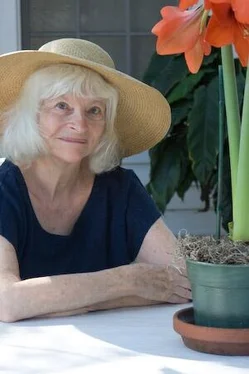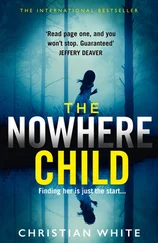“Aw, too bad,” the waitress said, resting her coffeepot on the table.
Paul made a conventional gesture of rueful resignation.
“Listen, I’ll tell you what; I’ll get you a book, soon as I finish with the coffee. I’ve got one out back ... Nah, that’s all right. No trouble.”
She was away before Paul could stop her; he was left to wonder what she would bring him, and then to speculate amusedly on a culture in which any book was the equivalent of any other. The incident was typically Los Angeles, he thought: in Boston or New York even a very stupid waitress would not imagine that he read the same books she read; nor would she step outside of her role to bring him anything not on the menu.
He must not and did not smile. In a way it was a challenge; an individual was trying to treat him as an individual, not as a mechanical task. He must rise to the occasion and behave in such a way as not to discourage such acts. There had been other hints of this attitude; for instance, the direct, curious gaze and speech of garage mechanics as he drove across the West. (“Where you from in Massachusetts? I got an uncle back there.”) They seemed not to have classified him, other than as a person. How unlike New York, where every stranger is an object to observe or dodge on the street; or Cambridge, where one does sometimes speak to strangers, but only if they are obviously of one’s own caste.
Well, he must behave like a native too. He had already resolved that while he was in Los Angeles he would do his best to follow the local mores; he wanted to create as little as possible of what sociologists call “noise” or “static.” Not only for the sake of better reception, but in order to preserve something which he was beginning to find agreeably unique.
The waitress had finished pouring coffee and gone back into the kitchen, and now Paul remembered reading in some sociological text that for the working classes the word “book” means anything printed which is not a newspaper; every magazine is a “book.” Maybe she would bring him a copy of Look or the Post rather than some popular love story.
Here she came. He composed his features into the beginnings of a friendly and grateful smile.
The waitress walked up to Paul’s table, and laid down in front of him a new copy of Samuel Beckett’s latest play.
With great difficulty, Paul prevented an expression of astonishment from appearing on his face. “Well, thank you,” he uttered.
“Maybe you’ve already read this.”
“No, but I’ve been wanting to.” This was true. “I—” But she had already whisked away to take an order at another table.
Paul opened the book, but could not concentrate; he kept looking up. Twice the waitress was simply waiting on a table, her back to him, and it passed through his mind that maybe the book had been left behind by some other literate customer. The third time he caught her standing by the kitchen door, balancing her tray and half smiling to herself in his direction. He realized that she probably knew what he had been thinking, and also what he was thinking now. He looked away; he tried to read, and could not; he tried to finish his sandwich. Finally, caught staring again, he signaled for the check.
“Like that book?” she said, scribbling on her pad.
“Very much. I wish I had more time to read it.”
She seemed to consider, adding the check—she added like any illiterate waitress, slowly, frowning and chewing on her pink tongue—then said: “I can lend it to you, overnight, like, if you want.”
“Yes, I would. Thank you.”
“Only you get it back here tomorrow.” This was said in a tone of friendly threat; both smiled.
“All right. Do you read this kind of thing often?”
The waitress looked at him a moment, like Justice deciding whether the scale should rise or fall; she had large brown eyes, set wide. “No,” she said finally. “Mostly I read True Screen Stories and the Saturday Evening Post.” Paul laughed; she laughed too, softly. What a pretty girl she was.
“You’re not really a waitress,” he said, and for the first time he spoke in the tone he would have used to an attractive girl at a party. But her reaction to this was unfavorable: her face became cold and blank, and she said in a voice like that of a waitress:
“I don’t get you.”
“Well, really—” Paul smiled; no reaction. He laughed self-consciously. Then, determined not to give up, he said: “Hey. What’s your name?”
“Ceci. Can’t you read?” CECI was embroidered in green on the pocket of her uniform. She shifted her hips and looked round the room, about to go. But Paul was stubborn; besides, her very rudeness, quite outside the conventional limits of rudeness for waitresses, gave him confidence.
“Just Ceci?”
“Cecile, then. If you must know, Cecile O’Connor.”
Paul had gone on staring at her, and when she finally glanced back to say this, they exchanged a look which unsettled him. It did not last long; Cecile O’Connor dropped his check on the table and walked off quickly towards the kitchen.
But who is she? Paul thought. As he left (late now), paying the check at the cashier’s desk, he recalled that she hadn’t bothered to ask his name. A wave of ridiculous depression passed over him because of this small incident, that a waitress had not wanted to know his name. Then he recalled that exactly who he was, and what he was (at least for the moment), was printed in capital letters on his chest: SECRET PAUL CATTLEMAN, NUTTING RESEARCH AND DEVELOPMENT CORPORATION.
3
A BLACK JAGUAR SPORTS car was stopped on the west shoulder of the San Diego Freeway between Pico and National Boulevards, in full view of the southbound afternoon traffic, and two people sat in it quarreling. They were Glory Green, a successful Hollywood starlet, and her husband Dr. Isidore Einsam, a successful Beverly Hills psychiatrist.
“Okay, I get the idea. You’re pissed off at me,” said Glory in her amazing voice, and she turned her amazing face away. She wore the conventional costume of a kooky starlet on vacation: high-heeled sandals; tight pink silk pants from Jax; long, baggy, bulky, dirt-colored sweater; and a tall conical straw hat tied under the chin with a pink scarf. Her face, including the mouth, was painted chalky brown all over, as if with Kemtone; her heavy eye makeup was hidden by heavy dark glasses. She had the soft, throaty, resonant speech of the mature actress, but with a childish half-lisp which grew more pronounced in moments of stress, so that she actually described her husband now as “pithed off.” But it did not really matter what Glory said, for first practice and then habit had brought her to the point where she could not even telephone for a plumber without sounding sexy.
“I’m not pissed off at you, pie-face,” Iz said. “I just think it might be interesting to find out why you forgot your bathing suit. I’m interested in your reasons for wanting to forget it.” Iz often cited Glory to his professional friends as proof that a stable personality need not be a conventional one; she was completely off-beat, completely and wonderfully original, without being neurotic.
“I didn’t want to forget it, stupid. I wanted to pack it.”
“I don’t think so,” Iz said, smiling a psychiatrist’s knowing smile. Though he was only thirty-two, and had not been in private practice long, he did this smile most effectively. The psychiatrist’s beard he had recently grown (small, dark, pointed) helped a lot. Like his wife, Iz wore huge black-rimmed sunglasses; the rest of him was covered with inoffensively elegant sports clothes.
“Okay.” Glory sighed theatrically. “Let’s have your interpretation.”
Читать дальше












